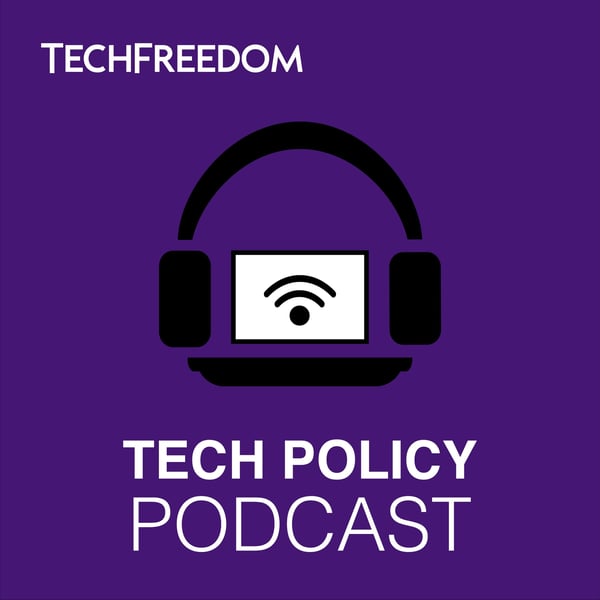#169: The Future of Tech Policy
Tech Policy Podcast
TechFreedom
4.8 • 45 Ratings
🗓️ 14 April 2017
⏱️ 24 minutes
🧾️ Download transcript
Summary
Transcript
Click on a timestamp to play from that location
| 0:00.0 | Welcome to the Tech Policy podcast. I'm Evan Swartzbrber. On today's show, The Future of Tech Policy. With such an open-ended and large topic, we need a large personality to talk about it. So I'd like to introduce to the show for the first time, Austin Carson, the relatively |
| 0:21.3 | new executive director of Tech Freedom. Prior to that, he was the legislative director for |
| 0:27.1 | Chairman Michael McCall of the Homeland Security Committee in the House. And before that, |
| 0:31.2 | he was a tech staffer for Blake Farenthold, another Texas congressman who we've talked about |
| 0:37.2 | on the show before because he's really interested in some of the issues tech freedom works on. |
| 0:40.5 | But without further ado, Austin, welcome to the podcast. |
| 0:43.6 | Hey, Evan, thanks for having me. It's an honor. |
| 0:45.4 | So I guess the first most obvious question is that you were in Congress doing all this stuff on tech policy, right? |
| 0:51.2 | You know, trying to bring people together, pass bills. |
| 0:53.6 | What led you to |
| 0:54.8 | leave Congress and come to our lovely little think tank called Tech Freedom? Besides the unbelievably |
| 1:00.1 | lucrative nonprofit arena. Now, honestly, I spent so much time inside of the Hill trying to work |
| 1:06.7 | with other staffers, trying to work with stakeholders stakeholders whether that means people that are making |
| 1:11.0 | cool tech stuff people that are modifying it or building on top of it or everyday people that are |
| 1:16.7 | using these products or would be benefited by an evolution of these products to figure out |
| 1:22.9 | you know what's the right path forward what kind of information do we need to get to that |
| 1:27.0 | right path forward what's holding of information do we need to get to that right path forward? |
| 1:27.8 | What's holding us back institutionally or practically? And the more that I continue to think about it, the more I realized that it was going to require more than all of us living in our silos, even as we tried to do things like when we started the tech staff association to help bring people together |
| 1:44.2 | and de-conflict, that taking a step back and looking at this in an overarching sense is the right |
| 1:50.2 | thing to do right now. Because in my personal opinion, we are on the precipice of a sea change in the |
| 1:56.5 | way that we look at technology, the way the technology impacts our lives, and the way that it's |
| 2:00.1 | deeply ingrained in our lives. I mean, right now now I think a lot of people, they have their smartphones, |
... |
Please login to see the full transcript.
Disclaimer: The podcast and artwork embedded on this page are from TechFreedom, and are the property of its owner and not affiliated with or endorsed by Tapesearch.
Generated transcripts are the property of TechFreedom and are distributed freely under the Fair Use doctrine. Transcripts generated by Tapesearch are not guaranteed to be accurate.
Copyright © Tapesearch 2025.

